Kefir for diarrhea: features of use and useful recommendations
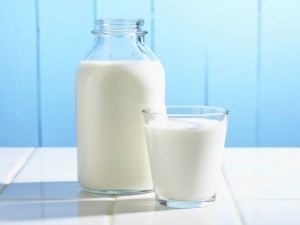
Diarrhea is a bowel disorder. It can signal various problems with the body, and the treatment of diarrhea involves, first of all, following a special diet. Is it permissible to include kefir in it?
Composition features
Kefir contains about 22 beneficial microorganisms that contribute to the restoration of intestinal microflora. The basis of the product is alum fungi, special living microorganisms and bacteria that contribute to the fermentation of milk and its transformation into kefir. In addition, the product includes retinol, beta-carotene, B vitamins, ascorbic acid, vitamin D and choline. Kefir contains proteins, fatty acids and a small amount of ethyl alcohol.
The content of the last component depends on the degree of maturity of kefir and increases with the shelf life of the product. Among the minerals, the most valuable can be called manganese, potassium, selenium, cobalt, sulfur, iodine, iron, zinc, copper.
Depending on the amount of fat in kefir, a product of various fat content is isolated - from fat-free to fatty (4.5%). The amount of fat also determines the calorie content of the product.
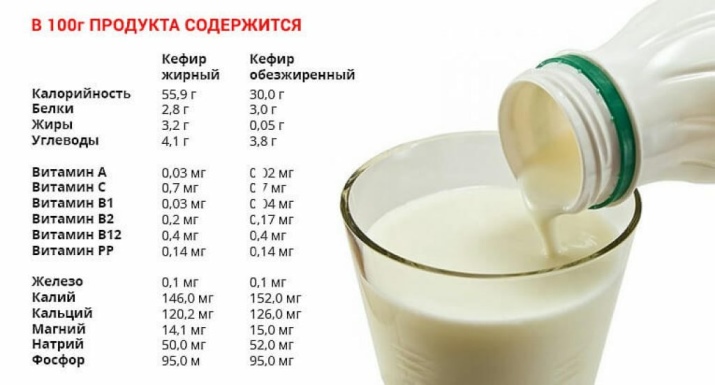
Harm and benefit
The use of kefir is of great benefit for upset intestines and digestive problems. However, we will immediately make a reservation that this statement is true only for a natural product based on sour-milk sourdough. You can recognize such a product first of all by a short, usually 5-7 days, expiration date. Natural kefir is a probiotic that improves the condition of the intestinal flora. This is due to the fact that the product blocks the development of pathogenic flora and promotes the reproduction of beneficial ones. In addition, kefir has a cleansing effect - it removes toxins and decay products from the intestines.
This is very important, although many people think that during diarrhea, the intestines are completely cleared. In fact, it accumulates a lot of pathogenic bacteria and toxins, which, covering the walls of the intestine, interfere with the absorption of useful elements. Kefir helps to cleanse the body and improve the absorption of nutrients. They, in turn, are necessary for the activation of the immune forces of the body, recovery.
Kefir itself also saturates the body with vitamins and useful minerals, protecting and ensuring the growth of immune cells (as you know, the main part of immunity is in the intestines).


In addition, kefir improves digestion, making it easier. Such assistance to the digestive tract after illness is very timely. Indeed, even dietary food can be digested slowly, thereby provoking fermentation processes and flatulence. It is important to understand that these fermentation processes negatively affect not only the stomach and intestines, but also the liver. She is forced to take on an increased amount of toxins and poisons for processing. Kefir, on the other hand, helps to eliminate the very cause of fermentation in the intestines, and also removes toxins, thereby relieving the load from the liver. The product contains acidophilus bacilli and lactobacilli, which have a healing effect and help restore damaged epithelial cells.
Despite the benefits of a fermented milk product, it has a number of contraindications. First of all, this is an individual intolerance to kefir.This happens when a person is allergic to casein or lactose. Kefir is a product with a high content of acids, therefore, with increased acidity of the stomach, gastritis, ulcers, it is better to refuse to consume it. As an alternative, you can drink low-fat natural yogurt without sugar and fillers. Ideally, it is better to cook it yourself. Naturally, only a fresh product will benefit.
Expired kefir is not only contraindicated in diarrhea, but can provoke its appearance in a healthy person.
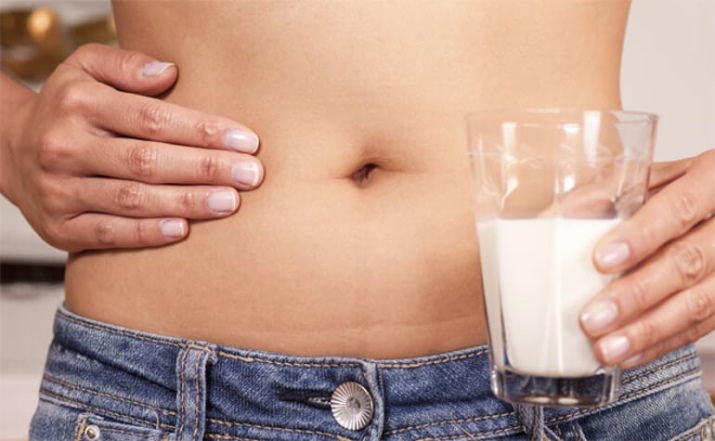
Recommendations for use
With diarrhea, you can drink kefir, but starting no earlier than 3-4 days of illness. In the early days, it is ideal to adhere to curative fasting. If you include a fermented milk product in the patient's diet during this period, this will cause increased intestinal activity and increase its peristalsis. This will only aggravate the course of the disease, cause even more inflammation of the mucous membranes.
For 2-3 days, as the general condition of the patient improves, in particular, the stool improves, the pain syndrome decreases, kefir can be gradually included in the diet. Of course, if there are no contraindications to its consumption. If after the introduction of a fermented milk product into the patient’s diet, his condition worsened, this means that you need to give up kefir for a while, “push back” its appearance in the diet. If there is an increased body temperature, vomiting, diarrhea and severe cutting pains in the abdomen, it is also worth delaying the consumption of the product.
Daily dosage for an adult - 2 cups of kefir. It is advisable to drink it every day for 2 weeks. The first glass is recommended to drink in the morning, on an empty stomach. This will help "start" the digestive processes.The second glass is drunk in the evening, no later than an hour and a half before going to bed.
It is important that kefir is low-fat. Suitable product 0.5-1% fat.

Children under one year old should be given kefir at the stage of recovery with great care, which is associated with a possible intolerance to casein. It must be special baby product. It is important to understand that the consumption of kefir for diarrhea is not a panacea. Kefir is just part of the diet. In general, it implies the exclusion of food that provokes gas formation, the processes of fermentation of food in the intestines, as well as food that irritates the mucous membranes.
Reducing fats and carbohydrates, exclusion of fresh fruits and vegetables from the diet, and boiled and grated are allowed from the 5-6th day of illness. You need to eat in small portions, consume a lot of fluids (kefir, water, herbal teas and decoctions).

There is an opinion that old kefir has a strengthening effect on the intestines, while fresh, on the contrary, weakens. However, this opinion is far from the truth. And old kefir, as we have already said, can itself provoke intestinal upset.
We must not forget that kefir is a living product. However, the activity of bifidobacteria in the product is practically zero already on the 3rd day of kefir storage. There are few benefits from such "sour milk". To restore bowel function and treat diarrhea, you should choose fresh kefir, from the date of production of which a maximum of 3 days have passed.
Another important point - identify the cause of diarrhea. If it was provoked by dysbacteriosis, then it is recommended to start using kefir from the first days of the development of the disease. Moreover, a more “strong” three-day drink is recommended. If diarrhea is provoked by intestinal diseases (gastritis, Crohn's disease, etc.)etc.), then it is better to consult a specialist about the possibility of using it. It is possible that a violation of the stool is one of the symptoms of gastritis with high acidity of gastric juice. In this case, kefir will only aggravate the course of the disease. A similar picture is observed with the development of diarrhea as a consequence of lactose or casein intolerance. In this case, the consumption of kefir will cause increased diarrhea, deterioration of well-being.
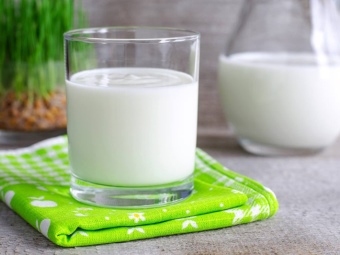

Traditional medicine recipes
To obtain the best effect, traditional medicine recommends combining the intake of a fermented milk product with medicinal herbs. Used to treat diarrhea tansy, chamomile, horsetail. Good results in the treatment of diarrhea milk to which kefir alum is added. Milk must first be boiled, cooled to room temperature and kefir alum added to it. Infuse for a day, and then take 1.5-2 glasses a day from 3-4 days of illness. The duration of treatment with this "drug" is 7 days.

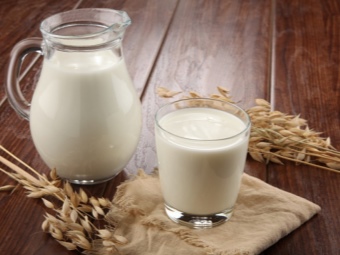
What can be replaced?
As already mentioned, kefir can be replaced with fresh yogurt, it is important that it has a low fat content, is free of sugar and fillers. As an alternative, the mentioned milk with kefir alum is also suitable. With dysbacteriosis, usually caused by long-term antibiotic treatment, kefir can be replaced and supplemented with drugs based on lactic acid bacteria. They should be prescribed by a doctor from the first days of taking antibiotics or at the end of the antibacterial course.
Kefir can be replaced with fresh cottage cheese or dishes based on it, for example, cottage cheese casserole. True, it is prepared without sweeteners of sour cream, butter. Many varieties of hard cheese in their benefits are not inferior to kefir and cottage cheese and are allowed for diarrhea.In addition, they will help make up for the calcium deficiency that often occurs with diarrhea. Ryazhenka can be an alternative to kefir, but it should still be used with caution. The reason is the higher fat content.
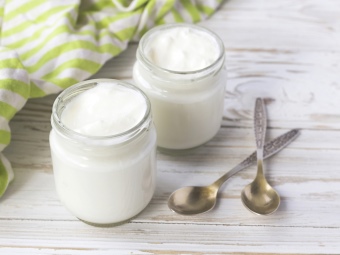

But it is better to refuse whole milk for diarrhea and recovery after it. On the contrary, the consumption of milk can cause increased reproduction of pathogenic microorganisms.
If it is difficult to refuse milk, then it should be included in the diet at least 4-5 days after the illness.
See below for recommended foods for diarrhea.

















